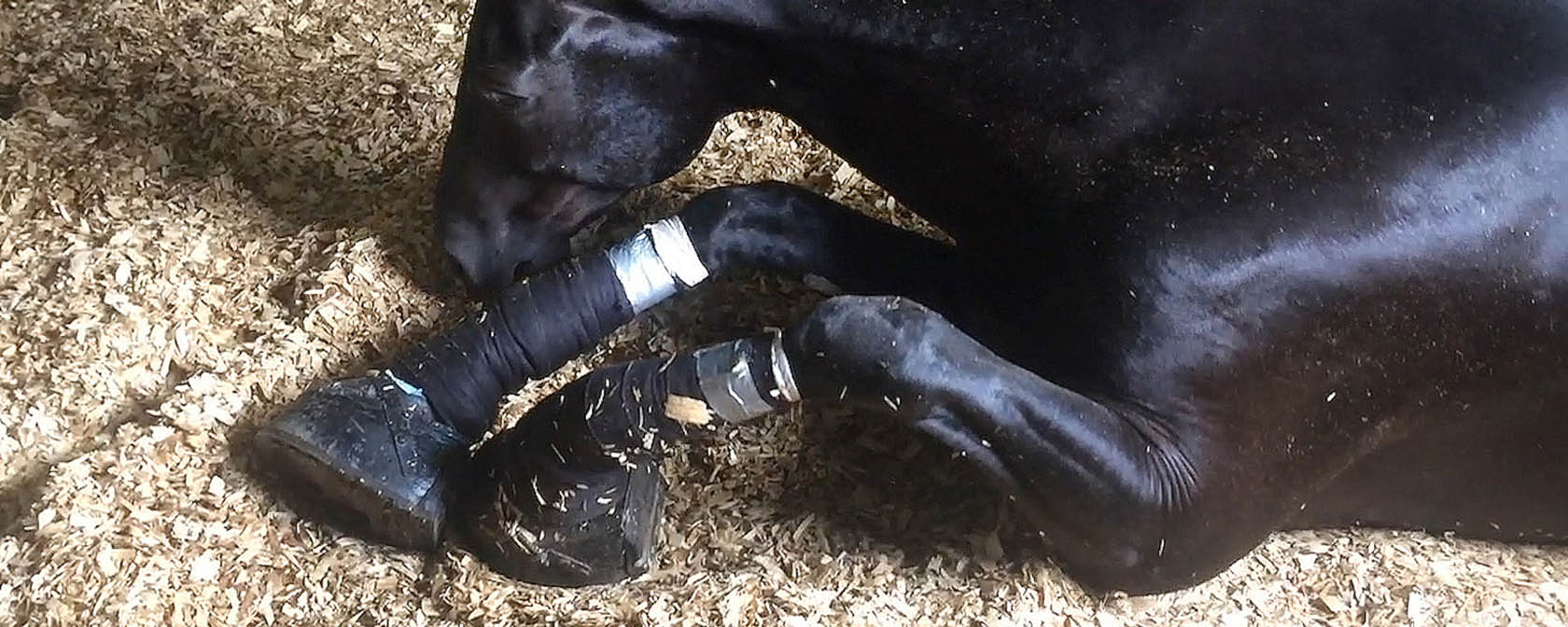By Sara Amundson and Kitty Block
Amidst continuing dissatisfaction over its approach to ending the problem of horse soring, a cruel practice that produces an artificial high-stepping gait in show horses, the U.S. Department of Agriculture has taken a backward step. The agency plans to withdraw a 2017 rule to come down hard on soring, one that was the result of extensive public input and support and one that received final approval at the time.
We’re unhappy with the USDA’s decision to withdraw the rule, and we’ve denounced it. We’re also encouraging public comments to drive home the point that the agency should not pull the rule without committing to a timeline for the implementation of a strong new rule in its place.
It’s impossible to exaggerate the depravity of a practice in which trainers deliberately harm horses by slathering their limbs in caustic chemicals and covering them with plastic wrap to “cook” into the animals’ flesh. In training and competitions, they force the horses to wear heavy, high-heel-like shoes concealing hard objects jammed into the tender soles, along with metal chains that knock repeatedly against their sored ankles. All this misery is inflicted to produce the “Big Lick,” the gait long rewarded by some judges in the show circuits of Tennessee walking horses and related breeds.
The stated purpose of the Horse Protection Act, passed in 1970, is to end soring. However, the self-policing enforcement scheme allowed by the HPA regulations enables industry operatives to train their own inspectors to examine horses for evidence of this cruelty at shows. This system is rife with conflicts of interest and has allowed soring to persist unabated. USDA data reveals that in events between 2018-2020 at which horses were examined by industry inspectors and USDA inspectors, the USDA inspectors found violations at a rate 403% higher than industry inspectors—illustrating that industry inspectors had turned a blind eye to soring.
In response to an audit by USDA’s Inspector General that called this scheme a failure and said it should be abolished, the agency pledged in 2010 to replace industry self-policing with a system that relied on USDA-licensed and trained inspectors. In 2017, the agency announced final regulations to do so. Those regulations received more than 100,000 supportive public comments, including bipartisan letters signed by 182 Representatives and 42 Senators. Unfortunately, these regulations were withdrawn by the Trump Administration.
We challenged this unlawful withdrawal along with several individuals involved in the Tennessee walking horse industry, and the U.S. Court of Appeals for the District of Columbia Circuit agreed that the agency’s abrupt withdrawal of the 2017 HPA rule was illegal. It remanded the case to the District Court for the District of Columbia to determine the appropriate remedy for USDA’s unlawful action.
Now, the USDA has communicated its plan to proceed with a new HPA rule that has sat stagnantly at the White House’s Office of Management and Budget for review since September 2022. Yet the agency states that it cannot promulgate that rule within six months, and it provides no timeline for when that rule might be proposed, let alone finalized.
In short, withdrawing the 2017 final HPA rule leaves in place the unlawful regime that existed prior to its finalization, indefinitely. We’re not satisfied with this approach.
The Prevent All Soring Tactics (PAST) Act, H.R. 3090, broadly supported in the Congress, would codify key elements of the 2017 HPA rule, including eliminating the failed industry self-policing system and use of devices integral to soring. The legislation has twice been passed by an overwhelming bipartisan majority in the House of Representatives and is consistently co-sponsored by a majority of the Senate. Since the USDA itself could accomplish much of what the PAST Act aims to achieve, Congress has also expressed support for upgraded regulations, through appropriations language calling for the swift proposal, finalization, and publication of the new final rule.
Soring should have ended in this country over half a century ago. We urge the White House to quickly finish its review of USDA’s new proposed rule and implore the agency to move forward promptly with its promulgation.
USDA is soliciting comments on its proposal to withdraw the 2017 rule during a brief 30-day comment period. Please take action here to let the agency know it should not withdraw that rule without a commitment to moving swiftly to implement a new rule to ban the use of soring devices and end the failed system of industry self-policing.
Kitty Block is CEO of the Humane Society of the United States.
